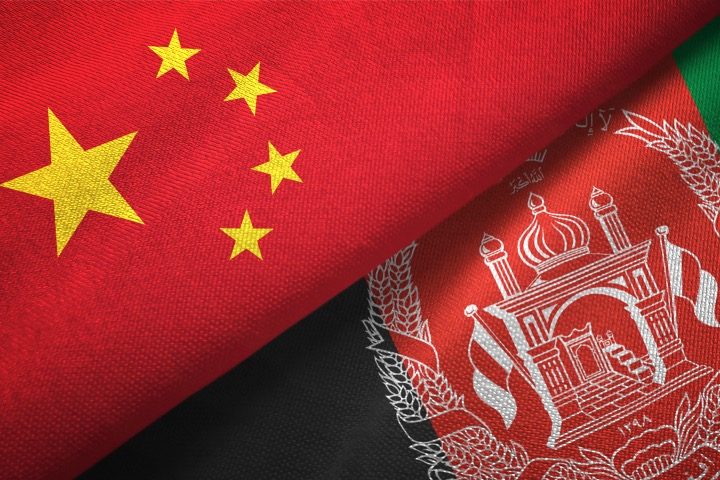
The America-led foreign policy establishment’s ability to cajole states into submission via economic isolation is on the decline, as evidenced by the apparently thriving situation of the Taliban regime in Afghanistan.
As recently reported by Breitbart News, the Taliban claims to now have signed contracts worth $6.5 billion to let Chinese, British, Iranian, and Turkish companies conduct mining operations in Afghanistan.
The claim was made by Taliban Minister of Petroleum and Mines Shahabuddin Delawar, who stated during a press conference on Thursday that the mines in question produce iron, lead, and gold. The goal of the conference was to encourage further foreign investment in Afghanistan, which possesses an estimated $3 trillion worth of mineral resources.
According to the Afghan News channel Tolo News, the recently signed mining deals hand control of seven mines over to the highest bidder. Six Afghan corporations were listed, but some of these have received the green light to conduct their mining in collaboration with foreign partners.
For instance, gold mines in Takhar province will be worked by the China-Afghanistan Company and have attracted a $310 million investment. Meanwhile, British companies GBM and AD Resources have partnered with Afghanistan’s Shamsh corporation to pour $572 million into an iron mine in Ghoryan, which will also be under the purview of the Turkish company Epcol, which also has an investment in a lead mine in Ghor province.
The largest of the projects announced Thursday is a $1.17 billion investment into another part of the Ghoryan mine, a joint effort by Iran’s Ehya Sepahan and Parsian corporations.
The Taliban is eager to make business partners where they can, even if it means the Islamic fundamentalist group — known for its strict adherence to its interpretation of Islam — must work with those who hold conflicting religious views. For example, the Taliban is trying to bolster its relations with Iran in order to attract investment from its neighbor.
As Breitbart reports:
The Taliban has also been courting the radical Islamist regime in Iran for business deals, despite the Taliban being a Sunni terrorist organization and Iran being a Shiite state sponsor of terrorism. Despite some territorial squabbles — a Taliban terrorist threatened to “conquer” Iran in May over a water-sharing dispute on their mutual border — senior Taliban officials have sought business deals with Tehran.
According to Afghanistan’s Bakhtar News Agency, Afghanistan’s foreign minister, Mawlavi Amir Khan Muttaqi, had a meeting with Iranian lawmakers last week in which the topic of discussion was expanding trade between the two countries. Khan told the Iranian politicians that “Afghanistan is a good market for Iranian products,” but that his country needs more investment to improve shipping and transit.
China has become the Taliban’s largest and arguably most important trade partner, having quickly moved to establish ties with the Islamic regime shortly after it came to power after the withdrawal of American forces two years ago.
Chinese investment has proven to be crucial to Afghanistan, which lacks access to funding from sources such as the World Bank and the International Monetary Fund (IMF) due to accusations that the Taliban is a terrorist organization and a violator of human rights.
The Taliban has signed deals with Beijing allowing China to build factories in Afghanistan, extract Afghan oil, and even put surveillance systems in place to facilitate the Taliban’s efforts to control the populace.
As Bakhtar reports, Afghanistan is eager to participate in China’s Belt and Road Initiative (BRI), a global infrastructure development strategy through which China funds projects in poorer nations.
China has already spent over $1 trillion to build infrastructure around the world as part of BRI, which detractors claim is nothing more than a scheme to get poor nations hopelessly in debt to them (and apparently build infrastructure that doesn’t even work) and further their global influence.
Chinese President Xi Jinping launched BRI with the aim of it being something of a modern Silk Road, allowing Beijing to become the center of world commerce and thereby supplant the United States.
The ever-closer relationship between the Taliban and China comes as Beijing makes important diplomatic gains on the world stage. One front in which the communist regime is winning is in pulling more nations into BRICS, its answer to the G7 bloc.
As The New American recently reported, the five BRICS countries — Brazil, Russia, India, China, and South Africa — have officially invited Argentina, Egypt, Ethiopia, Iran, Saudi Arabia, and the United Arab Emirates (UAE) to join.
Before the group’s summit in Johannesburg last month, there were 23 official applicants, with 16 additional countries mulling over potential membership bids in the near future — demonstrating the group’s growing appeal and the eagerness of nations to align themselves with China and Russia rather than the United States and European Union.
The oil question demonstrates the stakes involved in the growth of BRICS. The newly expanded BRICS is poised to control almost half of the world’s total oil reserves, at a proportion of 719.5 billion barrels out of 1.6 trillion. That would rise to 65.4 percent if Venezuela, which has sought membership, joins.
By contrast, G7 economies (including the United States) collectively control only 3.9 percent of known crude reserves.




